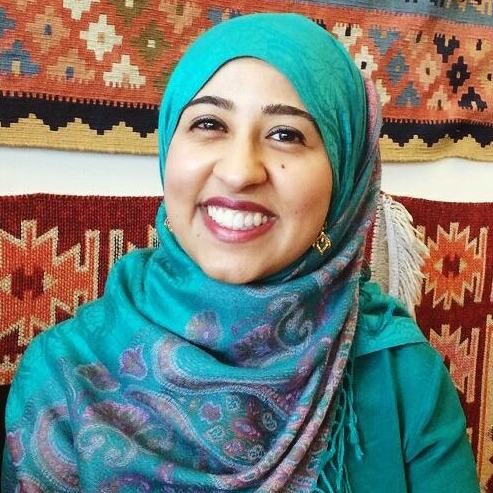Shagufta Pasta is a writer, educator, social planner, storyteller and 2018 RADIUS Fellow who called Vancouver, Toronto and Joburg home. To read more about Shagufta’s life, adventures, and books she’s reading, check out her blog Seriously Planning.
Photos by Matt Hanns Schroeter.

I am a career and experiential educator, and the paradox about seeking to prepare students for the world of work is that the longer you work in this field, the more removed you can become from the very processes and systems you are trying to improve. Before becoming a RADIUS Fellow, I felt that there was more I needed to know to effectively contribute to issues that I care deeply about. The RADIUS Fellowship resonated not only because I felt I had reached my own personal capacity and that I needed new ideas and inspiration to do more, but because I had a desire to have experiences where I would stretch, learn new things and become uncomfortable.
The first time I visited RADIUS, I knew I wanted to be part of the Fellowship program because of the tantalizing titles calling me from the RADIUS desks. This felt comforting; when I am unsure about how to move forward in my personal and professional life, I gravitate towards books. If there is one lesson I’ve learnt over the past few months as a RADIUS Fellow however, it has been about the value of learning not only from books but from people, and that welcoming and inviting feedback into my life and into my work from myself and others is necessary to create positive change in the world.
Receiving feedback has always been a growth edge for me. In one of our early Fellowship sessions, we had the opportunity to bring a project or challenge that we were working on to our peers for open and candid feedback. The thought of being one of the four or five featured projects left my stomach queasy, and so I turned towards that fear and brought Seriously Planning, a project that centers diverse stories to my fellow Fellows. The session was structured so that I had an opportunity to explain my project and challenge to our small group and answer questions for a few minutes but then could not interject, clarify or ask any questions while the group was deliberating. In fact, I had to turn away and take notes while the group was crafting possible solutions and ways to move forward. Though asking others so directly for feedback and advice felt deeply uncomfortable, I was astonished to discover how useful the entire process was to me. Within forty minutes, our group of 5 had come up with ideas and solutions and questions that I had been unable to see from my own vantage point, and I left the session buzzing with all the potential directions for my project that opened because of the generous expertise of others.
In another session with David Hatfield, he offered us a different way to approach conflict. We all have blind spots he suggested, and when you approach conflict from the perspective that another person can see something about you that you cannot, and that conflict is an opportunity to learn more about yourself, it is possible to change your feelings about it. In that framework, conflict is not a disturber, it can be a messenger. To help us understand this better, we had an opportunity to rehearse with a partner a conflict that we were still thinking about. While skeptical at first, I left that rehearsal session with insights and a physical expansiveness in my body that I had been unable to arrive at previously on my own. The realization that valuable feedback and learning can come not only in moments when it is actively sought but also in moments where deep conflict is taking place, was an unexpected discovery.
In another session talking about deep democracy, we learnt about how every system has things that are marginal and dominant within it. That which is marginalized can cause disturbances until it is seen and addressed properly. That is true for systems but also true for ourselves, and our RADIUS sessions have made me acutely aware that I cannot create systems change until I am rooted within myself. The Fellowship has taught me that social change starts from within. Through asking me to become curious about my relationship to power, my connection to reconciliation, my habits, my internal states, my conflicts, my goals, my approach to self-care and so much more, this Fellowship has expanded my definition of stories to be signals or information about the world, and made me someone who is far more willing and perhaps even excited, about opportunities to receive feedback from myself and others. It is something I will take with me from my Fellowship experience for a long time to come.

